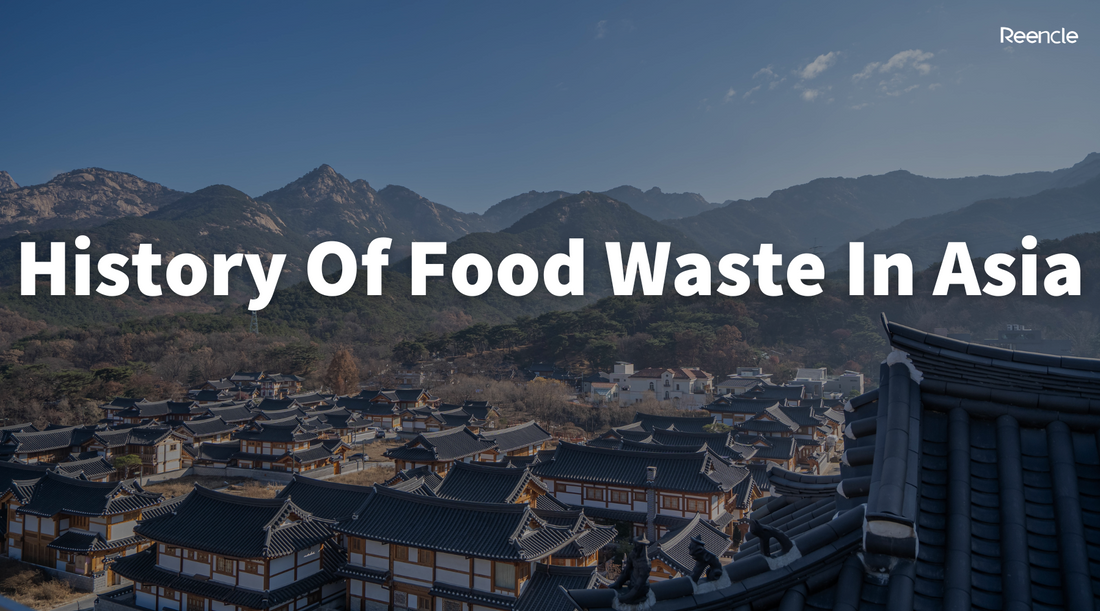The continent of Asia is renowned for its rich culinary heritage, diverse flavors, and culinary innovations that have influenced gastronomy worldwide. Food waste in Asia represents up to 34% of the total food served. The history of food waste in the Asian continent is laced with intricate complexities - cultural practices, economic shifts, technology and even global influences. In this article, let’s delve into Asia's complicated yet intriguing history of food waste.
Read until the end to find out what efforts we’ve made (and continue to make) to combat this phenomenon.

Food Waste In The Past
Back in ancient times, the people of Asia deeply understood the value of food and how it arguably played the biggest role in sustaining lives. Through the practices of mindful consumption and being resourceful, close to nothing was ever wasted. Methods of food storage and preservation were developed across early agricultural communities to ensure they lasted through the seasons. This included techniques like fermenting, drying, pickling and salting food which both reduced waste and allowed them to have extra food for lean times.
Besides a deep understanding of food’s value, Asian cultural beliefs and rituals also played a significant role in preventing food waste. In many Asian cultures, food is perceived as a gift from the Gods or ancestors which in turn created a deep respect for food. To this day, elaborate ceremonies and festivals that centre around food can be seen; these traditions started hundreds of years ago and food was shared with the community to reduce waste.

So where did we go wrong? How have we managed to hold on to these traditions while losing sight of the importance of managing food waste in our lives?
Once there was a rise in urbanization and trade in Asia, the way food was treated also began to change. Rapid urbanization caused a disconnect between the rural agricultural practices and urban consumption patterns. In food markets and bazaars, large amounts of food were discarded due to spoilage, transportation-caused damage, and ever-changing customer preferences.

Commercial agricultural practices, mono-cultures and cash crops were also seen in Asia as a result of colonial influences. This shift caused the prioritization of certain produce for export while other local varieties were often left to perish. Because of this, farmers were forced to get rid of produce that failed to meet export standards due to their “imperfections”.
When Asia began undergoing modernization and embracing consumer culture, there was an increased emphasis on convenience and mass production. Supermarkets began growing rapidly alongside fast-food chains which resulted in excessive packaging and wasteful consumption patterns. Not to mention the shift towards processed and packaged foods which often led to an increase in edible foods’ discarding due to expiry dates and their appearance.

Where Are We Now?
We have continued to see a dramatic increase in food waste. This can be attributed to several factors:
Lifestyle Changes
With the rise of disposable income, food waste has risen, too. The never-ending options to dine out and the vast availability of convenient food options have led consumers to often over-order which leads to significant amounts of food wastage.
Inefficient Supply Chains
The lack of transportation and storage facilities especially in rural areas result in substantial losses of perishable produce long before they have a chance to reach market shelves.
Food Loss On Farms
Post-harvest losses due to improper handling and lack of access to technology contribute to the food waste crisis.
Consumer Behavior
The "throwaway culture" has penetrated Asian societies, leading to discarding food that is perfectly edible.
Social Attitudes
The stigma surrounding imperfect produce has led to its rejection at various stages of the supply chain.

To conclude, the history of food waste in Asia is a multi-faceted story, shaped by cultural traditions, economic changes, and global influences. From ancient times when sustainability was a way of life to the modern era of mass consumerism and convenience, food waste has been an ever-evolving challenge.
However, as awareness grows and concerted efforts are made, there is hope for a future where Asia can reclaim its legacy of reverence for food, minimize waste, and create a sustainable food system that honours both its heritage and the planet.
We are committed to bettering the environment by reducing food waste. We are doing this by composting our food scraps so they don't end up in landfills. You can get RM400 OFF your Reencle order here.

